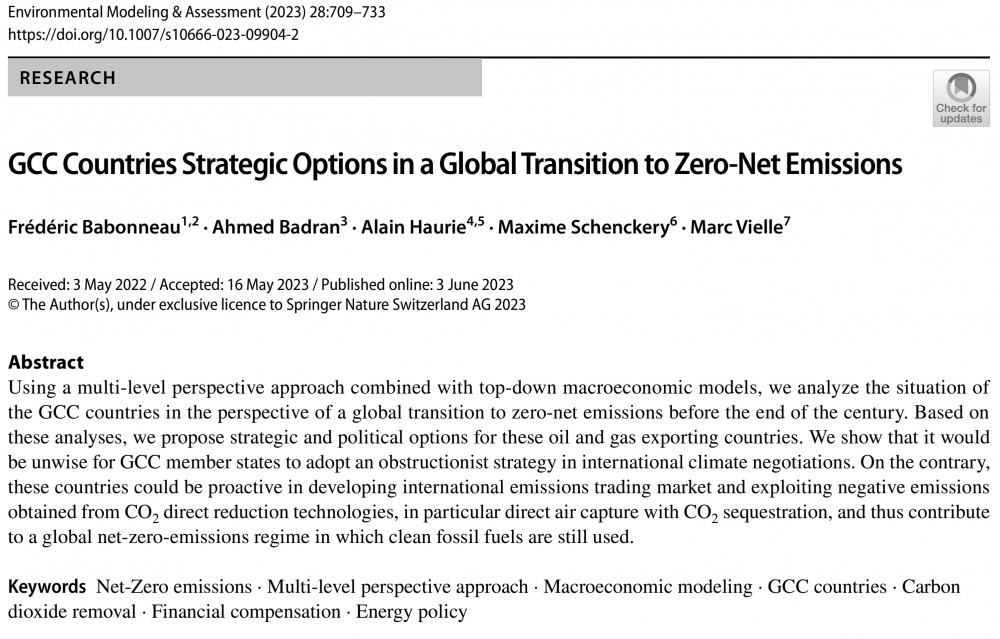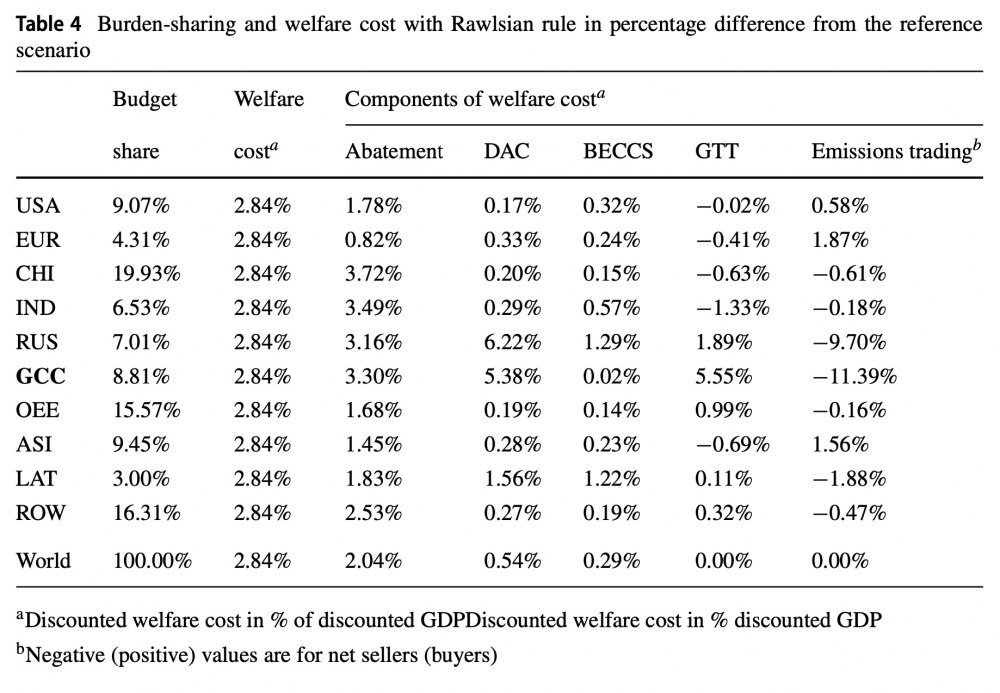We introduce a macroeconomic framework that combines a computable general equilibrium (CGE) model, namely GEMINI-E3, with a dynamic game model. The resulting "game meta-model" - under simplified but reasonable assumptions - is used to give a first view of the possible welfare losses in the GCC countries, if they were to implement a long-term mitigation strategy with CDR technologies.
The model describes 10 coalitions of countries (including a grouping of GCC countries) competing for the supply of emission permits in an international cap-and-trade system designed to meet a cumulative global security emissions budget (estimated at 1170 GT of CO2 over the period 2020-2100). A regime of zero net emissions is reached at the end of this period. To summarise the climate negotiations on the issue of burden sharing, we consider different possible distributions of the global cumulative security emissions budget between different coalitions. Once each coalition's share of the emissions budget has been decided, the coalitions are assumed to play a non-cooperative game for the supply of emissions permits on the international carbon market. Depending on their respective reduction policies, the coalitions may be net buyers or net sellers of permits. This generates payment transfers that converge towards equitable burden sharing. In addition, our modelling approach encompasses several key elements in the design of an international climate regime consistent with the objectives of the Paris Agreement. The gains from the game-theoretic model are obtained by statistical emulation of the GEMINI-E3 CGE model.
For mre information, please read the article below.




